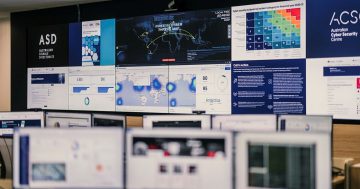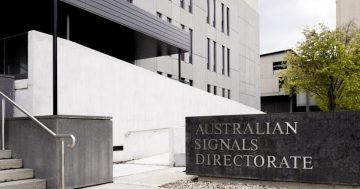
The creation of the Microsoft-Australian Signals Directorate’s Cyber Shield is a key tenet of an agreement signed with the company last October. Image: File.
The capabilities of the Australian Signals Directorate (ASD) Cyber Threat Intelligence Sharing (CTIS) platform have been boosted with the integration of Microsoft’s Sentinel platform to create the Microsoft-Australian Signals Directorate’s Cyber Shield (MACS).
Billed as a cutting-edge global cyber threat intelligence system, the MACS connection will allow Microsoft’s Australian customers who also partner with ASD’s CTIS platform to share cyber threat information at the speed and scale required to mitigate against growing threats in cyberspace.
The announcement follows a 23 October, 2023, agreement between the Australian Government and Microsoft for the company to invest $5 billion in Australia to enhance digital infrastructure, skills, cybersecurity and artificial intelligence (AI) capabilities, including the ASD collaboration.
That agreement was announced in Washington, DC, to coincide with Prime Minister Anthony Albanese’s visit last October, in the presence of Australia’s Ambassador to the US Kevin Rudd, the US Ambassador to Australia Caroline Kennedy, Microsoft vicechair and president Brad Smith, and Microsoft Australia and New Zealand managing director Steven Worrall.
At the time, the company said it would expand its hyperscale cloud computing and AI infrastructure in Australia over the next two years, and that this would strengthen economic competitiveness, create high-value jobs, and protect the nation from the increasing threat of cyber attacks.
The government says the initiative is an example of the importance of the partnership between the public and private sectors in countering the cyber threats Australia faces, and that it delivers on the commitment to enhance cyber threat visibility and harden the nation’s cyber defences.
Deputy Prime Minister and Defence Minister Richard Marles said it was of the upmost importance that Australia continued to build its cybersecurity capabilities.
“This initiative is a significant step forward in bolstering our cyber defences,” he said.
“The best cyber defences are founded on genuine partnerships between and across the public and private sectors. It is collaborative partnerships like these that foster innovation and deliver practical outcomes for Australia’s cyber resilience.”
Mr Worrall added: “This initiative builds on our recently announced investment into improving our nation’s cyber defences, under the Microsoft-Australian Signals Directorate’s Cyber Shield (MACS).
“We appreciate the opportunity to deepen our collaboration with the Australian Government, building on 40 years of partnership since Microsoft began operations in Australia.”
Other elements of last October’s announcement include the growth of Microsoft’s data centres in Australia from 20 sites to 29 in Canberra, Melbourne and Sydney.
The company is also investing in a partnership with NSW TAFE to establish a Microsoft Datacentre Academy where its global skills programs will help grow the current and future cloud- and AI-enabled economy by training data centre technicians, critical environment specialists, inventory and asset management professionals, and IT operations personnel.







